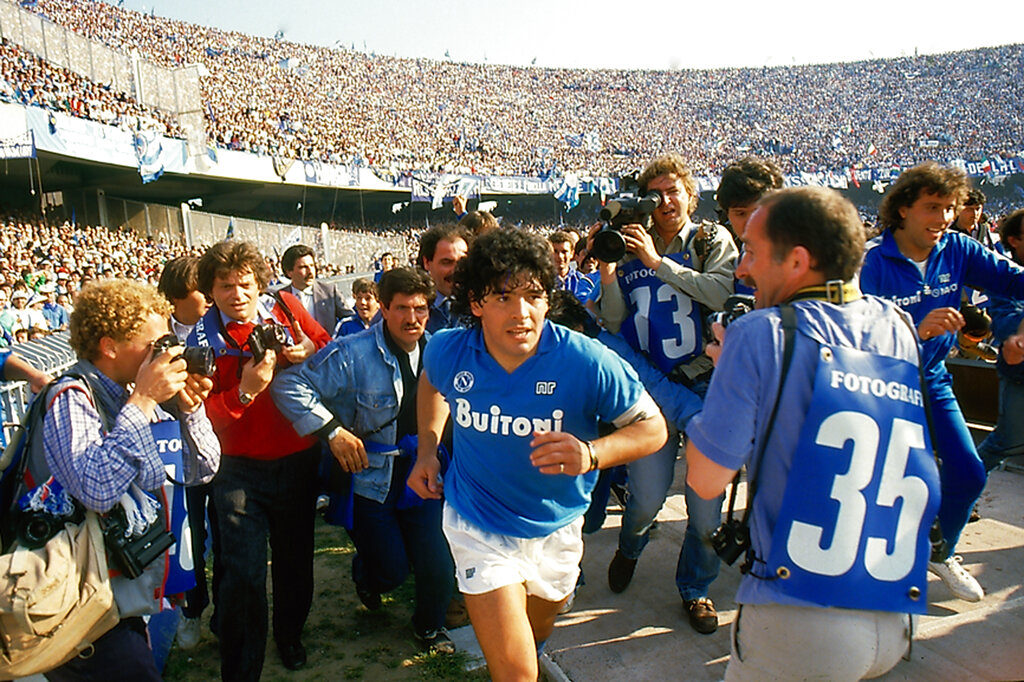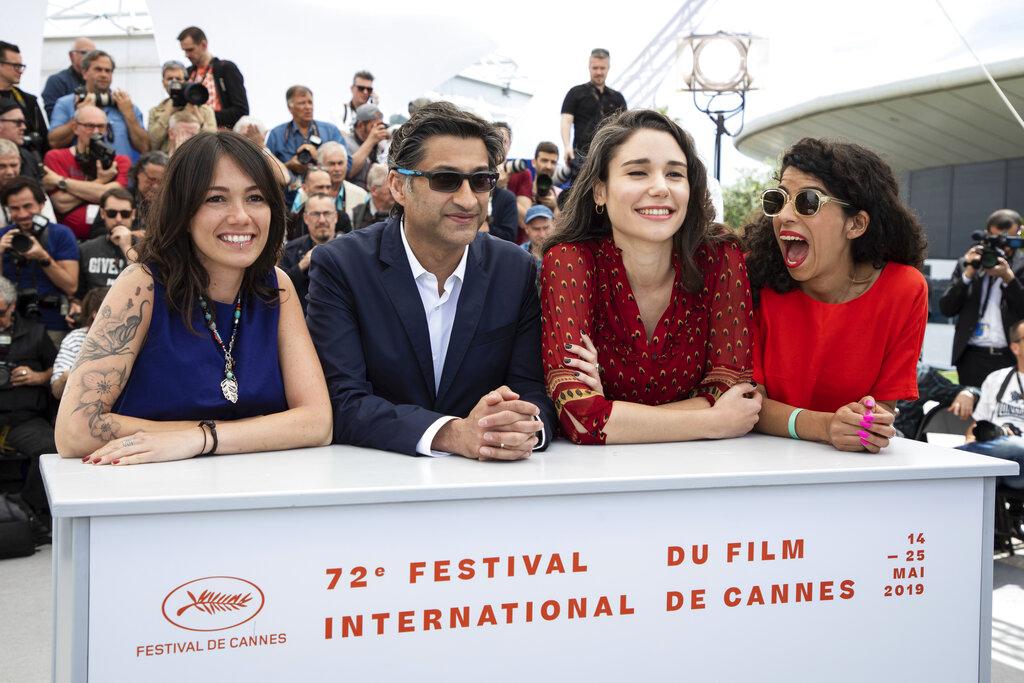Soccer god Maradona’s rise and fall in Asif Kapadia’s doc
CANNES, France — Asif Kapadia initially passed when, in 2012, producer Paul Martin approached him about making a documentary on Argentine soccer legend Diego Maradona.

This image released by HBO shows soccer star Diego Maradona in a scene from “Maradona.” Constructed from over 500 hours of footage, the documentary centers on the career of celebrated football player Maradona, who played for S.S.C. Napoli in the 1980s. Image: HBO via AP
Kapadia had just finished “Senna,” his ground-breaking 2010 documentary on the late Brazilian Formula One racer Ayrton Senna. He didn’t want to do another sports doc, especially about another South American sports hero. Instead, he went off and made “Amy,” the intimate Amy Winehouse that reappraised the British soul singer as a victim of her own success. It won Kapadia the Oscar for best documentary.
But Kapadia couldn’t shake off the project or the appeal of combing through Maradona’s personal archives, including more than 500 hours of never-before-seen footage. Kapadia this week premiered the result, “Diego Maradona,” at the Cannes Film Festival, where “Amy” also made its debut.

Producers Lina Caicedo, from left Fiammetta Luino, director Asif Kapadia and producer Raquel Alvarez pose for photographers at the photo call for the film “Diego Maradona” at the 72nd international film festival, Cannes, southern France, Monday, May 20, 2019. Image: Vianney Le Caer/Invision/AP
In Maradona, the British filmmaker found a combination of his first two subjects, both of whom died tragically young.
“He starts up almost like Senna, but he ends up more like Amy. He’s a bit of both, but different, because he gets older,” Kapadia said at a beachside restaurant in Cannes. “In a way, the empathy is different. It’s a like more mature relationship with him. I fell in love with Senna and Amy, in a way. But they were easier because they were younger.”
Kapadia hasn’t yet been able to screen the film for Maradona. The soccer icon withdrew from attending the film’s Cannes premiere because of a shoulder injury, according to a statement. HBO acquired the documentary ahead of Cannes, with plans to air it Sept. 24 after an Oscar-qualifying run.
Article continues after this advertisement“Diego Maradona,” like “Senna” and “Amy,” has the propulsion and visual drive of a fiction movie. It’s Kapadia’s most mythically drawn film, zeroing in on Maradona’s time with the Italian club Napoli, starting with his arrival on July 5, 1984.
Article continues after this advertisementThen the world’s greatest player, the frenzy surrounding him — an almost primal hero worship — grows even more extreme when he turns the flailing club into champions. Maradona becomes a god, only to later leave Italy trailed by scandal and drug addiction. In the eyes of Italians betrayed by Argentina’s 1990 World Cup defeat of Italy, he turns into the devil.
And just like “Senna” and “Amy,” there are no talking heads anywhere.
“If you’re making a documentary, the minute I cut to a talking head, you become aware of me,” says Kapadia. “A lot of people have no idea who made ‘Senna’ or who made ‘Amy.’ I’m cool with that. I don’t want to be in the film. It’s not about me. It’s not my opinion. It’s not my journey of making the film. It’s about him. It’s about her. It’s about Diego.”
Kapadia certainly didn’t invent the archival-based documentary, but he has greatly popularized it. His influence can be seen on a recent wave of docs, including “Apollo 11” and Peter Jackson’s “They Will Not Grow Old.” Kapadia doesn’t make any such claims, but grants: “I can see that there is before ‘Senna’ and after ‘Senna.'”
The footage in “Diego Maradona” comes from the late Jorge Cyterszpiler, a friend and agent to Maradona. He hired two cameramen to follow Maradona in the early ’80s, covering his time in Naples.
Audio of extensive interviews conducted by Kapadia is heard throughout “Diego Maradona,” including with Maradona. He was predictably difficult to get a hold of.
“People would say, ‘He might be fine tomorrow, he might not.’ Or, ‘Today, he’s not in a good mood but tomorrow will be a good day for you to interview him,'” says Kapadia. “And then you meet him and he’s not in the mood to talk.”
For many, the most familiar image of Maradona is his older, heavier self: a colorful presence at Argentina matches. But by not cutting back and forth between present-day Maradona, Kapadia’s film keeps its momentum and Maradona in his prime.
Kapadia likens himself to a pop artist.
“You take something that pre-exists that anyone will have seen already, like a photo of Marilyn Monroe, and you refocus it, you reframe it, you give it some color, put some sound, text, image and you give it back to people,” he says. “And they go, ‘Wow, I didn’t realize that.'” NVG
RELATED STORIES:
‘Half man, half god’ Maradona is king of Cannes